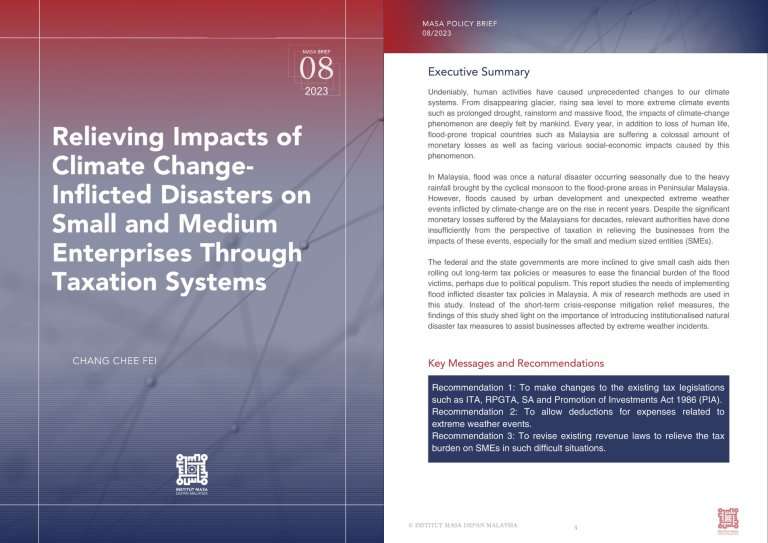Undeniably, human activities have caused unprecedented changes to our climate systems. From disappearing glacier, rising sea level to more extreme climate events such as prolonged drought, rainstorm and massive flood, the impacts of climate-change phenomenon are deeply felt by mankind. Every year, in addition to loss of human life, flood-prone tropical countries such as Malaysia are suffering a colossal amount of monetary losses as well as facing various social-economic impacts caused by this phenomenon.
In Malaysia, flood was once a natural disaster occurring seasonally due to the heavy rainfall brought by the cyclical monsoon to the flood-prone areas in Peninsular Malaysia. However, floods caused by urban development and unexpected extreme weather events inflicted by climate-change are on the rise in recent years. Despite the significant monetary losses suffered by the Malaysians for decades, relevant authorities have done insufficiently from the perspective of taxation in relieving the businesses from the impacts of these events, especially for the small and medium sized entities (SMEs).
The federal and the state governments are more inclined to give small cash aids then rolling out long-term tax policies or measures to ease the financial burden of the flood victims, perhaps due to political populism. This report studies the needs of implementing flood inflicted disaster tax policies in Malaysia. A mix of research methods are used in this study. Instead of the short-term crisis-response mitigation relief measures, the findings of this study shed light on the importance of introducing institutionalised natural disaster tax measures to assist businesses affected by extreme weather incidents.




